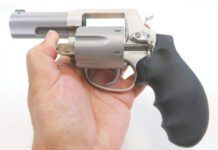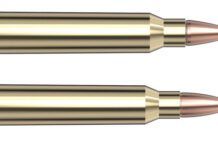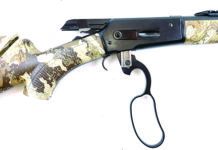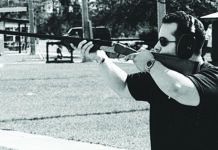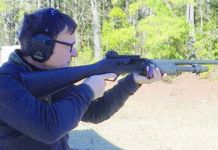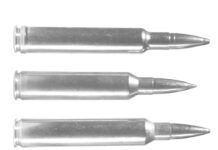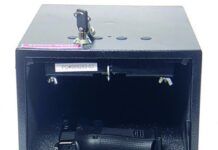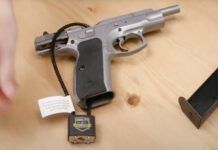(GunReports.com) — As any concealed handgun carrier knows, you should always be careful while in possession of your handgun. Whether you are loading, aiming, firing, or just carrying it, remember safety first. Prior to receiving your CHL, you were given some instruction on the proper handling of your weapon when it comes to loading, pointing and shooting. But what about carrying your pistol so that no one can see it? After all, it is a concealed handgun license. Texas does not have a statute which allows the open carry of a handgun and for a CHL holder, it is an offense to carry a handgun in a manner where it is not concealed.
Failing to conceal is a crime set forth in Texas Penal Code 46.035, writes attorney Michael D. Wisdom, president of the Texas Law Shield, a firearms legal defense retainer program developed by Houston-based Walker, Rice & Wisdom, P.C., Attorneys at Law.
The key to this crime is that a CHL holder must INTENTIONALLY fail to conceal their handgun. This means that in order to convict someone of this crime, the prosecutor must prove beyond a reasonable doubt that the CHL holder had a conscious objective or desire to expose their handgun. That is a very high burden to meet. This section of TPC 46.035 was purposely written with this high standard. For the other violations of TPC 46.035, such as taking a concealed handgun where prohibited, the mental state to be proven may be intentionally, knowingly or recklessly. This is a much lower mental state. Therefore, it can be argued that the Texas Legislature actually took into consideration that a CHL holder’s handgun might become accidentally revealed and chose only to criminalize this conduct when the handgun is purposely revealed by its owner.
Many of our member-clients and CHL instructors have concerns about a manner of carrying a handgun which could result in “printing”. This is not a legal term, it is a term used on the street to describe the visible outline of a handgun underneath someone’s clothing. Neither TPC 46.035 nor any other statute has defined the failure to conceal so as to include “printing”. Further, in the many years that this law has been on the books, there is no reported case law which defines or criminalizes “printing”. Reading the plain language of the statute, concealed means that the handgun or any discernable part of it cannot be in plain view. I have discussed this issue with several experienced police officers, attorneys and CHL instructors, and no one could recall an actual case of someone being arrested or charged solely because the outline of their gun was visible. However, concern over this issue is understandable, because many CHL holders do not want anyone, including the bad guys, to know that they are carrying a handgun.
“Printing” may occur if a person’s clothing is too tight or it is too sheer, or if the handgun they are carrying is too big. The prevention of “printing” is really just a matter of common sense. It is not prudent or comfortable to carry a full size Glock in your bicycle shorts. Fortunately, with the popularity of concealed carry, many clothing manufacturers are producing garments designed to accommodate concealed handguns with longer shirt tails and hidden pockets. Also, gun manufacturers are producing many more models designed to be carried discretely. With precaution “printing” is easy to avoid. Just check yourself in the mirror before leaving home. If you can see the outline of your pistol, others can too. As a practical matter, “printing” should be avoided because you would not want to alert the bad guys that you are carrying. It would eliminate the element of surprise, and some believe it would give an assailant the opportunity to attack you in a more strategic manner. Further, if your weapon is tightly constrained within your clothing it may compromise your ability to safely and quickly draw your pistol.
While carrying a concealed handgun, you should also take precautions that your gun does not become accidentally exposed. This type of accidental exposure is sometimes called “flashing” and as stated earlier, an accidental exposure is not a crime under TPC 46.035. It could, however, lead to you being detained and questioned. If you are in a grocery store and you are reaching for an item on the top shelf, your shirt could come up and expose your pistol. There could be people around you who may become alarmed and notify the authorities. Also, you may be asked to leave the premises of an establishment. On most occasions, if the police are notified, they will detain you, check your CHL, check for outstanding warrants, lecture you, or anything else they want to do short of arresting you. Before actually arresting someone, the police in many counties will discuss the case with the district attorney’s office to see if they will accept the charges. If the circumstances show that it truly was an accident, then it is highly doubtful that charges will be accepted or an arrest will be made. However, this entire event will not be worth the inconvenience or the embarrassment. Further, you cannot predict the attitude or behavior of every police officer who may have their own opinion about arresting you, even if it does not comport with the law.
As you are all aware, being a CHL holder and carrying a handgun entails a great deal of responsibility. This includes not just the proper handling of the weapon or the ability to assess threats, but also a responsibility to not unnecessarily alarm others or draw unwanted attention to yourself. As a good CHL holder, you should always be aware of your circumstances and the environment around you. This includes an awareness of your clothing and your weapon so as to prevent any “printing” or “flashing”. It is our sound legal advice that you should carry your handgun in a fully concealed manner. This will help you remain inconspicuous, avoid conflicts and prevent entanglements with the police. You never know when you may encounter that overly sensitive, observant citizen who calls the young inexperienced officer, which leads to a trip downtown for you. As is often said, “You can beat the rap, but you can’t beat the ride.”
Edwin Walker
Walker, Rice & Wisdom, P.C.


